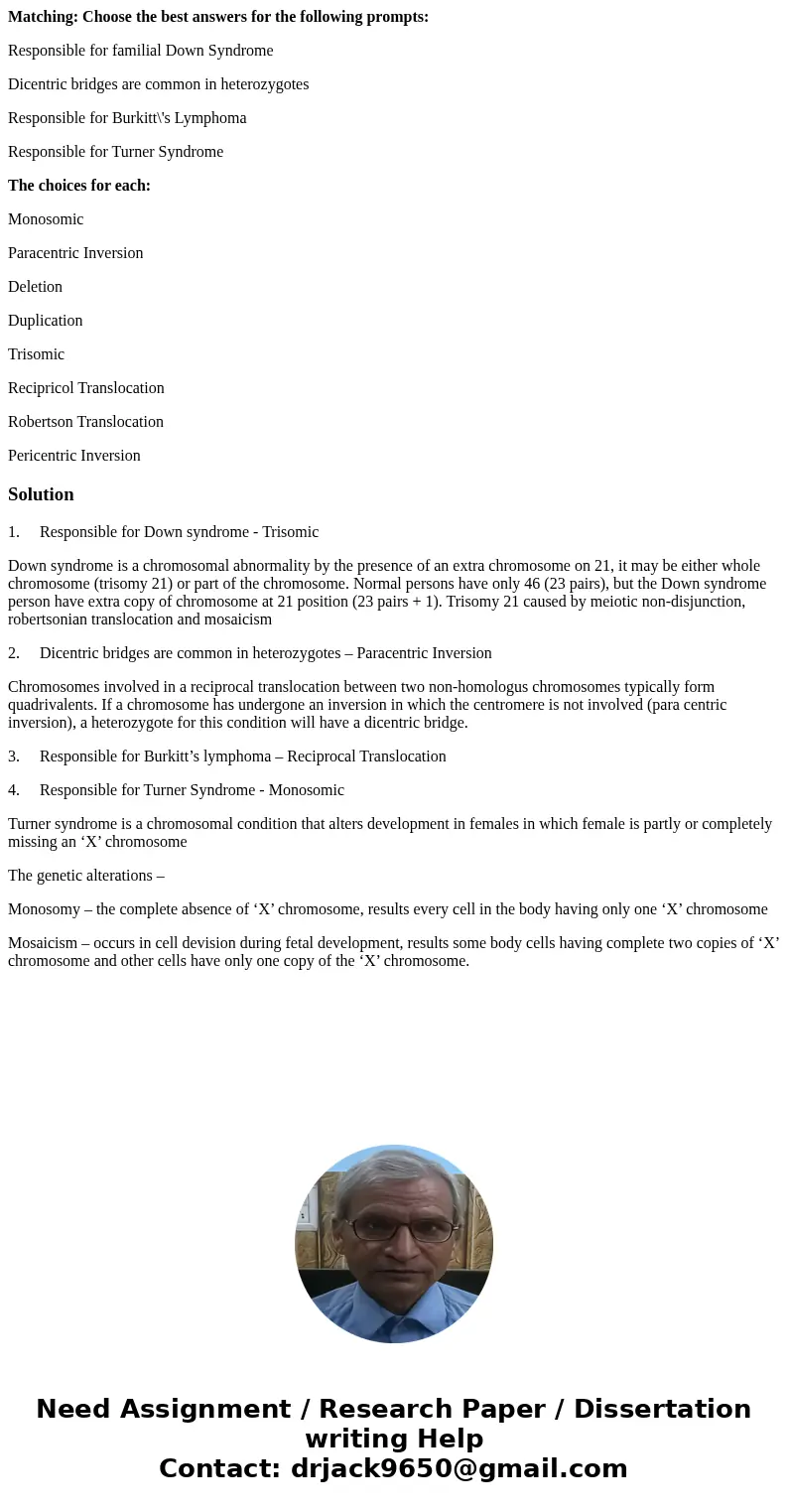Matching Choose the best answers for the following prompts R
Matching: Choose the best answers for the following prompts:
Responsible for familial Down Syndrome
Dicentric bridges are common in heterozygotes
Responsible for Burkitt\'s Lymphoma
Responsible for Turner Syndrome
The choices for each:
Monosomic
Paracentric Inversion
Deletion
Duplication
Trisomic
Recipricol Translocation
Robertson Translocation
Pericentric Inversion
Solution
1. Responsible for Down syndrome - Trisomic
Down syndrome is a chromosomal abnormality by the presence of an extra chromosome on 21, it may be either whole chromosome (trisomy 21) or part of the chromosome. Normal persons have only 46 (23 pairs), but the Down syndrome person have extra copy of chromosome at 21 position (23 pairs + 1). Trisomy 21 caused by meiotic non-disjunction, robertsonian translocation and mosaicism
2. Dicentric bridges are common in heterozygotes – Paracentric Inversion
Chromosomes involved in a reciprocal translocation between two non-homologus chromosomes typically form quadrivalents. If a chromosome has undergone an inversion in which the centromere is not involved (para centric inversion), a heterozygote for this condition will have a dicentric bridge.
3. Responsible for Burkitt’s lymphoma – Reciprocal Translocation
4. Responsible for Turner Syndrome - Monosomic
Turner syndrome is a chromosomal condition that alters development in females in which female is partly or completely missing an ‘X’ chromosome
The genetic alterations –
Monosomy – the complete absence of ‘X’ chromosome, results every cell in the body having only one ‘X’ chromosome
Mosaicism – occurs in cell devision during fetal development, results some body cells having complete two copies of ‘X’ chromosome and other cells have only one copy of the ‘X’ chromosome.

 Homework Sourse
Homework Sourse